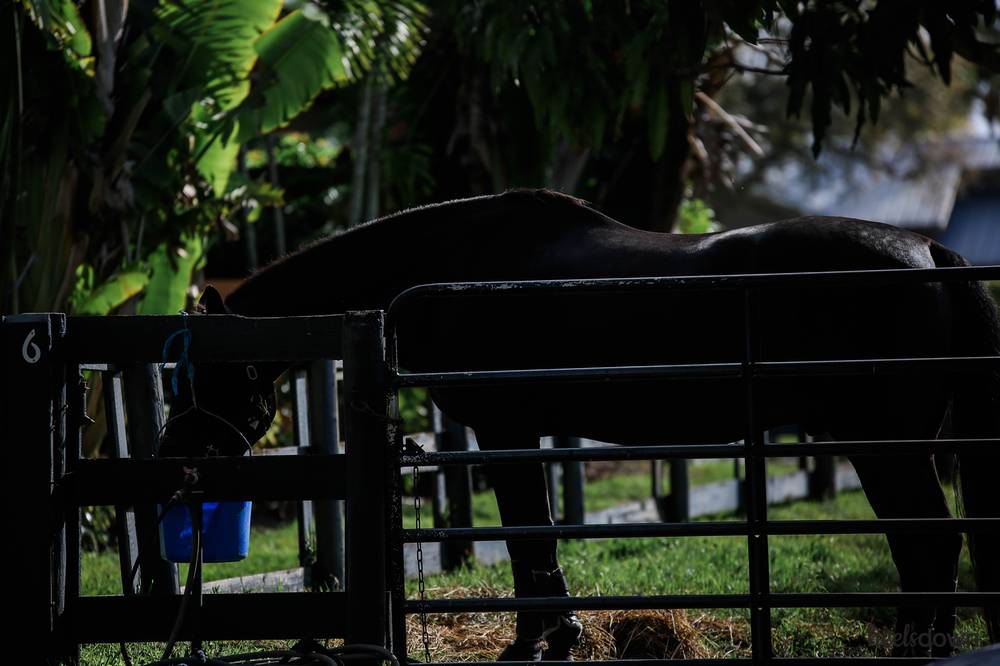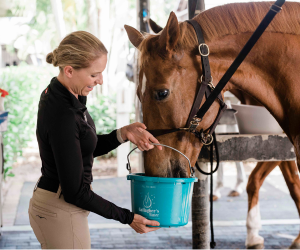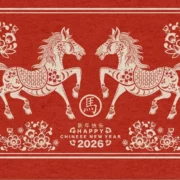Recycling 101: How To Do Better At The Barn

It’s 2019, which means most of us are pretty mindful of our waste and where it goes.
More people are recycling plastic, paper, cardboard – you name it – at home and at our offices. So why not be more mindful of what we can recycle instead of just throw out around the barn?
Here are some tips to help get you started around the farm.
Invest In Rain Barrels. These large, often plastic, barrels are used to capture water run off from roofs and store it for later use on lawns and gardens. But rain barrels could work beautifully at the barn, too, especially during the wet summer season. Several cities and towns, and even regional agricultural extensions often hold classes and give away barrel materials for free. Barn owners can use it to water their landscaping, or use it to store extra water during hurricane season. Since the barrel is covered, it shouldn’t attract mosquitoes or other water-drawn pests. But it could be used to fill water buckets for other farm animals, like goats or chickens.
Ditch Or At Least Reuse Plastic Products. It’s unfortunate that every time you run out of supplements, retailers ship you yet another plastic tub-full to replenish your supply. Instead of throwing out (or at least recycling) these plastic supplement tubs, find a use for them around the barn. They can serve as buckets to prepare feed, or keep stored in your horse trailer for use around the show grounds. You can use them at home too – to organize a storage closet or even as a mop bucket or similar cleaning tub.
If you’re not already enrolled in SmartPak’s Strips supplement program and are still combining supplements for your horse in plastic sandwich bags, there’s no excuse not to reuse them after only one or two uses. Store the empty bags at home and refill them as many times as you can, instead of investing in more plastic bags.
Understand What’s Actually Recyclable. If you’re throwing your greasy leftover takeout pizza box into the recycling bin, you’re doing it wrong. So let’s start out by understanding what is actually recyclable. Recycling rules do differ based on where you live, but generally speaking, the disposable coffee cup, the plastic shopping bag from Target, and yes, the pizza box, are going to end up in a landfill even if you throw it in the recycling bin. Click here to read more about the most common recylcing “offenders”.
So how does this apply to the barn? Don’t throw your morning yogurt cup into the barn’s recylcing bin – it will just end up in a land fill. Unfortunately most feed bags are not recyclable. But generally speaking, they are made from recycled materials.
There Are Vegan Equestrian Products Out There. Fabbri debuted a pair of custom, vegan-made tall boots last year that use zero animal products. Robert Dover launched “Robert Squared” a new line of tack and equipment made completely from organic, and non-animal products. If vegan’s not your thing, there are plenty of eco-friendly, sustainably sourced, horse products on the market. Make sure to do your research before buying.
Compost! When you have a horse farm, you’re rich in horse manure. Many local landscaping or gardening businesses are often happy to enter business arrangements with nearby farms to haul away horse manure for use as compost for plants. If that’s not an option for you, you can compost your own manure. It’s very useful in a vegetable garden (as is chicken manure, once properly composted). If you’re not using it to seed your pastures, it can also be used as fertilizer for your landscaping.
DIY. Outside of being mindful of leaving the fans running when the horses are turned out, or leaving lights on, or using too much water from the hose, horse enthusiasts can also get crafty with some of the waste they find lying around the barn. In most cases, I think it’s safe to say that horse people are generally pretty resourceful. We reuse bailing twine in a number of ways around the barn. But there are plenty “out of the box” ideas one could do.


